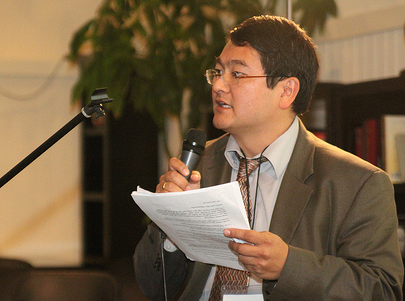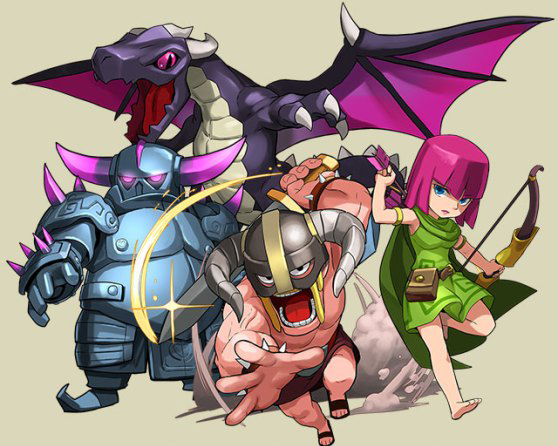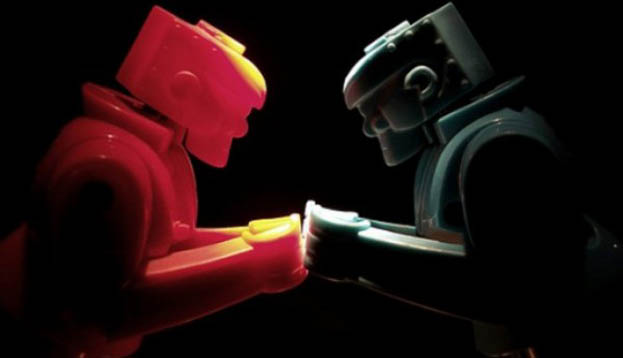The themes for GamesBeat conferences seem to be all about taking challenges in the game industry head on. This year is no exception, with organizers dubbing their event taking place next week in the San Francisco Bay Area as the “Battle Royal.” They’re setting a fight-to-the-death mood that’s not only befitting GamesBeat’s entrepreneurial audience but something the game industry needs. That’s because the industry’s in one of its cyclical fluxes again, with all sorts of game-capable hardware coming at consumers, and game makers struggling to keep up with where their most valuable audiences are now lurking. At the same time, some of the tumult of recent years has arguably settled. For one, the “death of consoles” movement has been put to bed, at least for now. That’s thanks to a string of console hits this past year that included new IP such as Sony’s The Last of Us and Bethesda’s Dishonored, and led up to last month’s record-setting debut for GTA V. And console naysayers can’t deny that there’s real buzz around next generation systems. Mobile and social games have also moved past their bubbles, and thankfully without entirely deflating. They’re showing to be real opportunities to build global game brands around. Testament to that is last week’s $1.5 billion investment by Softbank in Finnish mobile game maker Supercell.
 Dean Takahashi
Dean TakahashiGamesBeat’s Dean Takahashi, one of the masterminds behind the conferences, talked with us about this year’s show and how it reflects the state of the industry. He said that since he and organizers sat down nine months ago to come up with this year’s theme and agenda, the industry has seen a turnaround.
“The health of the industry has improved,” Takahashi told us. “I think the traditional companies in the industry have stepped up and showed some very good product, and sort of put that notion to rest that there wouldn’t be a new generation of consoles that would be interesting to consumers. So they brought some more stability back to the industry.”
That’s not to say the battles have ended and the victors defined. One look at the GamesBeat agenda and it is glaringly apparent just how many different opportunities — call them battle fronts — there are for game companies to take on. The micro-consoles are coming, and don’t shoot any of them dead yet. On that note, Ouya founder and CEO Julie Uhrman is on the show slate, talking about how micro-consoles’ success will lie in liberating indie game makers and their innovative game ideas. Social casino games continue to rise in popularity, and they’re represented at the conference. And since there’s talk of eSports rivaling anything in the realm of fandom the game industry has ever seen, it’s only natural that GamesBeat dedicate a panel to its rise, gathering major players such as Wargaming and Major League Gaming.
To Takahashi, the biggest challenge ahead lies in something much more straightforward from a business standpoint, that of creating truly global game companies and game brands born from new categories like mobile. It’s something the game industry successfully did with consoles. It now needs to reinvent the model for the mobile and digital side of the business, where there are far fewer barriers when it comes getting products out, but also where ways to effectively reach and generate audiences are still being defined.
“The gauntlet has been sort of thrown down, in terms of the challenge for all these mobile game companies, in terms of, sure you can get to a billion dollars, but are you going to be gone next year,” Takahashi said.
He pointed to how former EA boss John Riccitiello addressed a key barometer for success for up-and-coming game companies. Riccitiello is giving a fireside chat at the conference on the potential for mobile and free-to-play to unseat console gaming’s prominence.
“They all have this whole interesting challenge that John Riccitiello has pointed out. He says that what you see missing in mobile right now is major brands. You see games that are billion-dollar games, but to him that’s a small number, coming from EA. He wants to see brands that will be more than $10 billion over a decade, that are in the top 10 or top five games every single year. He’s not sure that the mobile games that we have right now are going to be around either a year from now or five years from now among the top grossers.”
 Supercell and GungHo combined IP powers, activate!
Supercell and GungHo combined IP powers, activate!Takahashi sees Softbank’s stake in mobile as a big bet on this front. Outside of its investment in Supercell, where it acquired a 51 percent stake in the Finnish developer, the bank owns a chunk of Japan-based mobile game maker GungHo Entertainment. The two game companies have put out this year’s biggest mobile game hits, and Softbank is banking on turning them into enduring global game franchises.
“I think [Softbank] are betting that the billion-dollar properties that they own a large chunk of now, like Puzzles & Dragons and Clash of Clans and HayDay, are going to be global properties that are not just sort of here and gone next year. They’re going to be brands that stick around for years and eventually become $10 billion properties, much like traditional game brands have become like Mario or FIFA.”
Soft bank’s move is indicative of another trend. Based on recent data, investments in the game industry are being led primarily by Asian companies, followed by Europe. The U.S. is trailing behind, and Takahashi cited how part of what’s responsible for it is that U.S. companies have been burned by their big investments in mobile and social. Still, a good sign for the industry as a whole is that investments overall are back on the rise after dipping last year.
Takahashi looked at investment trends based on a recent report from Tim Merel at DigiCapital: “There are a couple of ways to slice it, but the growth is there this year. Game acquisitions, which is what is included with the Supercell transaction, are at $5 billion already. That’s year-to-date — and all of last year was just $4 billion. So that’s growing quite a bit, and [correctly] based on the prediction that a lot of the Asian game companies would drive this acquisition binge. Then you also have something like a 35 percent increase in dollars in game investment year-to-date compared to the same year-to-date last year. So game investments are up, and so are game acquisitions. The kinds of players doing the deals that are very sort of different this year. You have a lot less activity from American companies, say Zynga or Electronic Arts.”
If U.S. companies are playing scared because of a few bad bets, should we expect that retreat to continue and leave the way open for Asian or European domination?
“I think there are winners and losers with the deals [U.S. companies] did, but that’s par for the course for the entertainment business,” said Takahashi. “I wouldn’t say count them out. There’s a big opportunity now, and you get the feeling there’s a land rush going on among the different larger players in the business who are trying to build global gaming brands and global gaming companies. If you sit on the sidelines because you had some bad acquisitions or investments that happened before, you run the risk of falling farther behind.”
Looking at next-gen consoles, it didn’t seem right to put Takahashi on the spot with a prediction on how they’ll fare. Analysts and pundits relish the opportunity to rub a crystal ball and toss out forecasts, but with it comes a certain comfort level with being wrong. Reporters of facts are less enthusiastic about it. So instead we asked him to share his thoughts on lessons learned from this last generation.
“I think we saw the blockbusters get bigger and better and more spectacular, just the way we’ve seen movies go,” Takahashi said. “But we also saw a lot of those games lose a lot of innovation. You can brag about the success of Grand Theft Auto hitting $1 billion in sales in three days, but you can also lament the fact that the game that’s doing that and reaching new heights is Grand Theft Auto and not what one of our speakers calls the ‘feel-focused’ games like Journey, or games where there are ethical choices or interesting subject matters that makes them more like art forms. I think that the game industry is almost a little embarrassed at the games that have brought back their fortune, which are objectionable to a lot of people. The industry is going to continue to wrestle with this kind of problem.”
GamesBeat 2013 takes place October 29-30 in Redwood City, California. You can check out the full agenda and registration details at the conference web site {link no longer active}. To take advantage of a 15 percent discount offered to [a]list daily, use the code “alist” and register here.

